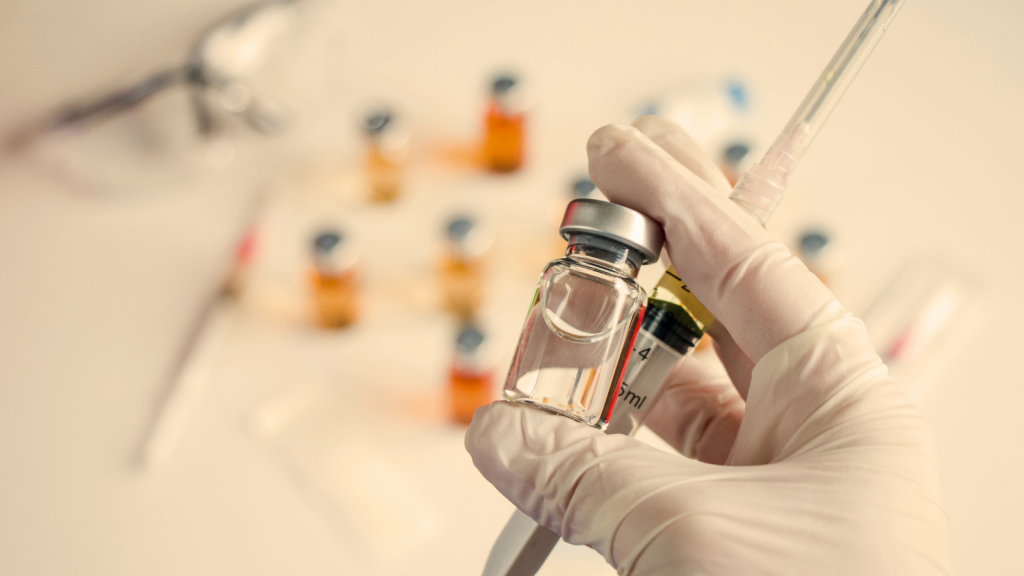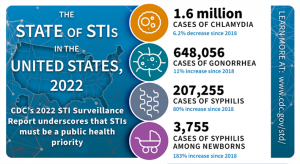
Doxy-PEP is a New Strategy to Help Prevent STIs
Doxy-PEP is the strategy of taking the antibiotic doxycycline after condomless oral or anal sex to prevent chlamydia, gonorrhea, or syphilis.

A Phase 1 trail for a possible new chlamydia vaccine had encouraging results. Chlamydia is one of the most common STIs worldwide, and untreated chlamydia infections are one of the most common causes of infertility. A vaccine could dramatically change this landscape.
Chlamydia is the most common bacterial STI in the United States. There were over 1.6 million cases reported to the CDC in 2022. There are likely many more that go undetected because chlamydia often has no symptoms.
Chlamydia can be treated with antibiotics but if left untreated it can lead to pelvic inflammatory disease (PID), an infection of internal reproductive organs including the cervix, uterus, and fallopian tubes. PID can cause scar tissue to build up in the reproductive tract which can lead to infertility.
Chlamydia can be prevented. Condoms are very effective against chlamydia because they create a barrier between partners and prevent the exchange of infected bodily fluids. Doxy PEP—a new sexual health strategy that involves taking an oral antibiotic after condomless sex to prevent STIs—may also help reduce the number of chlamydia infections in this country. It has been shown to reduce chlamydia by 80%.
However, this strategy is only recommended for adult men and transgender women who have sex with men and are at increased risk, particularly those who have had an STI in the last year. A safe and effective vaccine that is recommended for everyone could be a gamechanger in chlamydia prevention.
Researchers in the United Kingdom and Denmark conducted this early phase clinical trial with 65 participants (60 of whom finished the trial). None of the participants had chlamydia. Participants were randomly assigned to receive a placebo or the experimental vaccine at a variety of dosages over the course of the study.
The results found that the vaccine was safe and well tolerated. There were no serious adverse effects. It also found that the vaccine produced an immune system reaction in those participants who got it. Researchers don’t yet know whether that response will be enough to prevent chlamydia if/when someone is exposed. Phase 2 trials will look at effectiveness.
Some participants also received a vaccine in the form of eye drops. Chlamydia can be spread to the eye usually when someone touches infected genital fluids and then touches their eyes without washing their hands. This can lead to conjunctivitis (often casually referred to as pink eye) which causes itchy, red, and swollen eyes that may have a watery or pus-like discharge. Researchers were pleased to find that the vaccine eye drops were well tolerated and also produced an immune reaction.
There is a lot more research to be done before a chlamydia vaccine could be available, but we know that vaccines for STIs can dramatically reduce transmission and adverse health issues. Since the HPV vaccine was introduced, for example, infections with the types of HPV covered by it have dropped 88 percent in teen girls. And, among vaccinated women of all ages, the percentage of cervical pre-cancers caused by these HPV types has dropped by 40 percent.

Doxy-PEP is the strategy of taking the antibiotic doxycycline after condomless oral or anal sex to prevent chlamydia, gonorrhea, or syphilis.

New studies add to our evidence that Doxy-PEP is working to prevent bacterial STIs among transgender women and men who have sex with men.

Pelvic Inflammatory Disease (PID) Pelvic inflammatory disease (PID) is a serious infection in the upper genital tract/reproductive organs (uterus, fallopian tubes and ovaries) of women. PID can be sexually transmitted or naturally occurring. It can lead to infertility in women (unable to have children) or

CDC released new surveillance data on sexually transmitted infections. There were 2.5 million cases of chlamydia, gonorrhea, and syphilis reported in the United States in 2022. Rates of gonorrhea and chlamydia remain high, and rates of syphilis have gone up an alarming 80% since 2018.

Jointly provided by Postgraduate Institute for Medicine and American Sexual Health Association. This activity is supported by an independent educational grant from Hologic.

Chlamydia: A Common and Curable Infection Chlamydia is a common and curable infection caused by the bacteria chlamydia trachomatis. It is the most common reportable STI in the U.S. In 2022, there were about 1.6 million cases reported. Chlamydia can cured with antibiotic treatment, but
ASHA believes that all people have the right to the information and services that will help them to have optimum sexual health. We envision a time when stigma is no longer associated with sexual health and our nation is united in its belief that sexuality is a normal, healthy, and positive aspect of human life.
ABOUT
GET INVOLVED
ASHA WEBSITES
GET HELP
© 2024 American Sexual Health Association
Join us for a discussion of Dr. Tang’s new book, It’s Not Hysteria Everything You Need to Know About Your Reproductive Health (but Were Never Told), and ask Dr. Tang your questions about reproductive health!